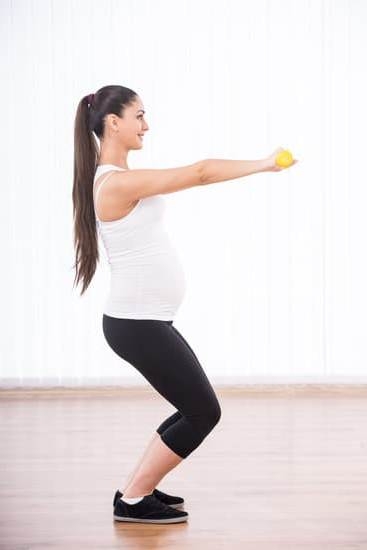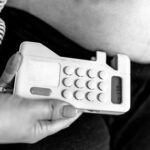When do you start feeling pregnancy symptoms? Many women eagerly anticipate the telltale signs of pregnancy, from morning sickness to fatigue and more. Understanding the early indicators of pregnancy can help women prepare for the journey ahead and seek the necessary support and care.
In this article, we will delve into the science behind pregnancy symptoms, explore the timeline of when these symptoms typically occur, discuss common signs to look out for, examine factors that influence onset, and offer tips for managing discomfort. Whether you are actively trying to conceive or simply curious about what to expect, gaining insight into early pregnancy symptoms can be empowering and informative.
Pregnancy is a transformative time in a woman’s life, marked by significant physical and hormonal changes. The onset of pregnancy symptoms varies from person to person, and understanding the underlying causes can provide valuable context and reassurance. We will explore the physiological mechanisms that trigger these symptoms, shedding light on the fascinating process of early pregnancy development.
By providing a week-by-week breakdown of pregnancy symptom timelines, we aim to offer practical guidance for those who are navigating this crucial stage. From subtle indications in the first few weeks to more pronounced discomforts as the pregnancy progresses, recognizing these signs can help individuals better understand their bodies’ responses during this important time.
With an emphasis on proactive self-care and seeking professional medical advice when needed, we will equip readers with essential knowledge for managing early pregnancy symptoms effectively.
The Science Behind Pregnancy Symptoms
Pregnancy symptoms are a result of the many changes occurring in a woman’s body as it prepares to support and nurture a growing fetus. These symptoms can vary widely from woman to woman, and even from pregnancy to pregnancy. However, they are generally caused by the hormonal and physical changes that occur during pregnancy.
What Causes Pregnancy Symptoms?
- Hormonal Changes: The most significant cause of pregnancy symptoms is the surge in hormone levels, particularly human chorionic gonadotropin (hCG) and progesterone. These hormones play a crucial role in supporting the developing embryo and maintaining the uterine lining.
- Physical Changes: As the uterus expands to accommodate the growing fetus, it puts pressure on other organs, such as the bladder and intestines. This can lead to common symptoms such as frequent urination, constipation, and indigestion.
- Blood Volume Increase: During pregnancy, blood volume increases significantly to supply nutrients and oxygen to the growing baby. This can lead to symptoms like fatigue and dizziness.
Additionally, emotional and psychological factors can also contribute to pregnancy symptoms. The stress and anxiety of becoming pregnant or dealing with potential complications can manifest physically in various forms. Understanding these underlying causes can help women better prepare for and cope with pregnancy symptoms when they arise.
Ultimately, while the exact cause of each individual symptom may vary, it is important for women to recognize that experiencing these discomforts is a natural part of the incredible process of creating new life.
Timeline of Pregnancy Symptoms
Pregnancy symptoms can start to appear as early as the first week after conception. However, not all women experience the same symptoms at the same time. Some may notice certain signs of pregnancy sooner than others. It’s important to remember that every pregnancy is different, so it’s normal for the onset of symptoms to vary from woman to woman.
For some expectant mothers, early signs of pregnancy, such as fatigue and breast tenderness, may begin within the first few weeks. Others may not notice any symptoms until several weeks into their pregnancy. It’s also possible for some women to mistake early pregnancy symptoms for premenstrual discomfort, leading them to overlook potential signs of being pregnant.
The factors that influence when you start feeling pregnancy symptoms include individual hormone levels, overall health, and sensitivity to changes in the body. Additionally, certain lifestyle factors such as stress levels and diet can play a role in how soon or how intensely these symptoms manifest. Understanding your body and staying in tune with its changes can help you recognize pregnancy symptoms when they appear.
| Week | Common Pregnancy Symptoms |
|---|---|
| 1-4 | Missed period, fatigue, breast tenderness |
| 5-8 | Nausea and vomiting (morning sickness), frequent urination |
| 9-12 | Fatigue, food cravings or aversions, mood swings |
Early Signs of Pregnancy
One of the most common questions among women who are trying to conceive or suspect they may be pregnant is, “When do you start feeling pregnancy symptoms?” The answer can vary from woman to woman, but in general, early pregnancy symptoms can start as soon as one week after conception. This is often before a missed period and can catch some women by surprise.
The first sign that many women notice is usually a missed period, which prompts them to take a pregnancy test. However, there are other early signs of pregnancy that may appear before a missed period. These can include breast tenderness, nausea or vomiting (often referred to as morning sickness), increased urination, fatigue, and food cravings or aversions.
It’s important to note that not all women will experience the same symptoms or at the same time. Some may have very few symptoms in the early weeks of pregnancy, while others may experience multiple symptoms right away. Additionally, factors such as stress levels, overall health, and individual hormone levels can influence when these symptoms start and how severe they are.
| Early Pregnancy Symptom | Typical Onset |
|---|---|
| Breast tenderness | 1-2 weeks after conception |
| Nausea/Vomiting (Morning sickness) | 2-8 weeks after conception |
| Increased urination | 6-8 weeks after conception |
Common Pregnancy Symptoms
When do you start feeling pregnancy symptoms? It’s a common question among women who suspect they may be pregnant. While every woman is different, there are some early signs of pregnancy to look out for. It’s important to note that these symptoms can vary in intensity and timing for each individual.
Here are some of the common early signs of pregnancy:
- Missed Period: This is often one of the first indicators that a woman may be pregnant. However, it’s important to note that other factors such as stress or hormonal changes can also cause a missed period.
- Nausea and Vomiting: Often referred to as morning sickness, nausea and vomiting can occur at any time of the day. This symptom can start as early as 2 weeks after conception.
- Fatigue: Feeling unusually tired or exhausted is also a common early sign of pregnancy. This can be attributed to the hormonal changes happening in the body.
Other symptoms may include breast tenderness, frequent urination, and food aversions.
These early signs of pregnancy are not always definitive, and the best way to confirm if you’re pregnant is by taking a home pregnancy test or consulting with your healthcare provider. Keep in mind that every woman’s experience with pregnancy symptoms is unique.
When Do You Start Feeling Pregnancy Symptoms
When discussing when pregnancy symptoms start, it is important to consider the factors that can influence the onset of these symptoms. Every woman’s body is unique, and while some may start feeling early pregnancy symptoms as soon as a few weeks after conception, others may not experience any noticeable changes until later in their pregnancy. There are several key factors that can influence when these symptoms begin to appear.
Individual Differences
One of the primary factors that can influence when pregnancy symptoms start is individual differences in women’s bodies. Every woman’s hormone levels, tolerance for discomfort, and overall health can vary, leading to differences in how and when they experience pregnancy symptoms. Some women may be more sensitive to hormonal changes and may notice symptoms sooner, while others may have a higher threshold for discomfort and not experience noticeable symptoms until later in their pregnancy.
Hormonal Levels
Hormonal levels play a significant role in the onset of pregnancy symptoms. After conception, the body begins producing higher levels of hormones such as estrogen and progesterone, which can lead to a range of physical and emotional changes.
The timing and intensity of these hormone surges can differ from woman to woman, impacting when they start feeling pregnancy symptoms. For some women, the increase in hormones may trigger early signs such as nausea and breast tenderness, while others may not notice any significant changes until later on.
Overall Health
A woman’s overall health can also influence when she starts feeling pregnancy symptoms. Factors such as diet, exercise habits, stress levels, and underlying medical conditions can all impact how her body responds to the hormonal changes associated with pregnancy. Women who are generally healthy and have strong immune systems may be less likely to experience severe or early onset of pregnancy symptoms compared to those with preexisting health issues.
Understanding these factors can help women anticipate potential changes in their bodies and better prepare for managing early pregnancy symptoms. It is essential to remember that every woman’s experience will be different, so it is crucial to consult with a healthcare professional if there are concerns about the timing or severity of pregnancy symptoms.
Coping With Early Pregnancy Symptoms
For many women, the early stages of pregnancy can be accompanied by a range of uncomfortable symptoms. Nausea, fatigue, breast tenderness, and increased urination are just a few of the common complaints. Coping with these symptoms can be challenging, but there are several strategies that can help make this time more manageable.
Rest and Relaxation
One of the most effective ways to cope with early pregnancy symptoms is to prioritize rest and relaxation. As the body goes through significant changes during this time, it’s important to give yourself permission to take it easy. Getting plenty of sleep and taking short naps throughout the day can help alleviate fatigue and boost overall well-being.
Healthy Eating
Eating a balanced diet can also play a crucial role in managing pregnancy symptoms. While some women may experience nausea or food aversions, focusing on small, frequent meals that are high in protein and complex carbohydrates can help combat morning sickness. Avoiding trigger foods and staying hydrated can also make a difference in how you feel.
Stay Active
Staying active during early pregnancy can improve mood and energy levels while helping to alleviate discomfort. Gentle forms of exercise such as walking, prenatal yoga, or swimming may offer relief from symptoms like back pain and bloating. It’s important to consult with a healthcare provider before starting any new exercise routine; however, most women will benefit from some level of physical activity during their pregnancy.
By implementing these coping strategies into your daily routine, you may find that early pregnancy symptoms become more manageable. Of course, it’s essential to listen to your body and seek guidance from a healthcare professional if you have concerns about your symptoms or well-being.
Seeking Medical Advice
In conclusion, understanding the onset of pregnancy symptoms is an important aspect of early pregnancy. As discussed in this article, the timeline of pregnancy symptoms can vary for each individual, and factors such as hormonal changes, implantation, and lifestyle can influence when these symptoms start to occur. While some women may start experiencing symptoms as early as a week after conception, others may not notice any changes until several weeks into their pregnancy.
It is essential for women to pay attention to their bodies and be aware of the common signs of early pregnancy, including nausea, fatigue, breast tenderness, and frequent urination. However, it is also important to recognize that every woman’s experience with pregnancy symptoms is unique. Factors such as stress levels, overall health, and previous pregnancies can all play a role in when these symptoms manifest.
When dealing with early pregnancy symptoms, it is crucial for women to have a support system in place and to seek medical advice when necessary. Whether it’s discussing discomfort with a healthcare professional or seeking guidance on managing symptoms, being proactive about one’s health during pregnancy is key. Ultimately, knowing when to consult a healthcare professional about pregnancy symptoms can provide peace of mind and ensure a healthy outcome for both the mother and baby.
Frequently Asked Questions
How Soon Can You Get Symptoms of Pregnancy?
Symptoms of pregnancy can appear as early as one to two weeks after conception. These symptoms may include missed period, nausea, breast changes, fatigue, and frequent urination.
How Early Can Pregnancy Be Detected?
Pregnancy can be detected as early as 7-10 days post-conception with a sensitive pregnancy test. Some tests claim to detect pregnancy even before a missed period, but accuracy may vary.
How Long Does It Take to Know if You Are Pregnant Without a Pregnancy Test?
Without a pregnancy test, it may take several weeks to know for sure if you are pregnant based on symptoms alone. However, relying solely on symptoms is not the most reliable way to confirm pregnancy.

Welcome to my fertility blog. This is a space where I will be sharing my experiences as I navigate through the world of fertility treatments, as well as provide information and resources about fertility and pregnancy.





